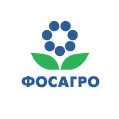
Brasilia (Brazil) – Andrey Guryev, Chairman of the Russia–Brazil Business Council, a member of the Management Board of the Russian Union of Industrialists and Entrepreneurs, and the Second Deputy Chairman for Russia to the Intergovernmental Russian–Brazilian Commission on Trade, Economic, Scientific and Technical Cooperation, met with cabinet members and leaders of non-governmental organisations in Brazil during the BRICS Summit in Brasilia to discuss the development of trade relations between Russian and Brazilian companies, including the production and promotion of environmentally friendly food. Valery Fedorov, the Executive Director and Deputy Chairman of the Russia–Brazil Business Council, and PhosAgro Deputy CEO, and Siroj Loikov, who oversees PhosAgro’s international projects as Deputy CEO, also took part in the meetings.
Since 2004, the Russia–Brazil Business Council has focused on expanding and developing business contacts between Russian and Brazilian businesses, protecting the rights and legitimate interests of Russian entrepreneurs, promoting Russian business in Brazilian markets and attracting Brazilian investments in Russia. Since June 2019, the Council has been headed by Mr Guryev, PhosAgro CEO and President of the Russian Fertilizer Producers Association.
To date, the Russia–Brazil Business Council has considered a rather extensive range of projects: initiatives in the aviation and defence industries, heavy and power engineering, the pharmaceutical industry, steelmaking, agribusiness and, of course, the fertilizer industry. In 2018, trade between Russia and Brazil exceeded USD 5 billion, with mineral fertilizers accounting for more than 70% of Russia’s exports; about one-third of mineral fertilizers imported by Brazil come from Russia. By comparison, agricultural and food products accounted for more than half of Brazil’s exports to Russia.
“Last year, agricultural products accounted for the bulk of Brazilian exports to Russia, where people are accustomed to consuming healthy and safe food, and where, at the initiative of Russian President Vladimir Putin, a Green Standard is being developed for agricultural products and foodstuffs with improved environmental performance and that use environmentally friendly fertilizers. This is aimed at attesting to the fact that products meet more stringent requirements than required throughout the world and informing consumers both in Russia and abroad about this fact, while also ensuring access to healthy, wholesome food. This initiative meets one of the UN Sustainable Development Goals for 2030. Russians want to be certain that imported products are at least as good as those produced domestically. The knowledge that the output of Brazilian farmers is produced using Russian environmentally friendly mineral fertilizers will provide a good incentive for promoting Brazilian agricultural products in the Russian market”, said Mr Guryev during a meeting with Sergio Ricardo Segovia Barbosa, President of the Brazilian Trade and Investment Promotion Agency.
The discussion of cooperation in the field of agriculture continued at a meeting between Mr Guryev and Brazil’s Agriculture Minister, Teresa Cristina. “Cooperation in the agricultural sector is developing on the basis of bilateral interest. A meeting of the Brazil–Russia Agricultural Committee held in Moscow, for example, noted the start of wheat exports to Brazil. And just the other day, a ban on the import of beef and pork from a number of Brazilian companies was lifted, which is a good sign for Brazilian business. As the head of the Russia–Brazil Business Council, and as the CEO of one of the world’s largest producers of phosphate-based fertilizers, I believe that, together, we can do more. Russia and Brazil, two of the leading global powers in agriculture, are capable of producing environmentally friendly products; our countries have the resources to do this”, said Mr Guryev.
Finally, the central topic of the meeting between Mr Guryev and Onyx Lorenzoni, Chief of Staff to Brazil’s President, was the possible participation of Russian companies in the Brazilian partnership and investment programme, which calls for the privatisation of state-owned enterprises worth more than USD 500 billion.
“It’s possible that this is the biggest economic deregulation programme in the world, and Russian business cannot but welcome the decision to start it. Its implementation will require not only tremendous efforts on the part of the government but also the skill and experience necessary to integrate state-owned companies into market processes. Ultimately, this means new budget revenues, new jobs, and higher-quality work in each of the sectors that it will affect. Russia has, by global standards, unique expertise in a wide range of industries. Russian experience shows that not only business, but also entire countries should be invited to take part in such programmes. I am confident that Russia and Russian business can be a strong and reliable partner for Brazil in upcoming transformations. We at the Russia–Brazil Business Council are prepared to discuss possible projects at the business level and to submit them for consideration at the intergovernmental level”, said Mr Guryev at the end of the meeting.
Following the meetings, the participants agreed to formulate a list of shared goals to facilitate the best-possible realisation of the potential for economic cooperation between Russia and Brazil.
“There is mutual interest in investment projects, which has been made clear. Above all else, we have heard that Russian private business and state-owned corporations in Brazil are waiting in the form of equal business partners”, Mr Guryev pointed out.
